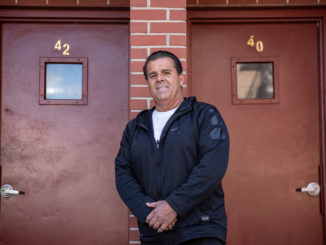
One quarter into 2020 and so much has happened to incite people to really contemplate the current condition of their lives. Some are making good use of this time to sit and reflect, others are capitalizing off of this moment in time to ensure business is good in the future.
Then, there are the ones who are soul searching. This time for them is an opportunity for them to connect to their mind, body and soul. Exercise and meditative rituals help to soothe out the uncertainty of the times. Just like a masseuse eases out a knot with a deep tissue massage, one of the ways to heal the soul is to forgive.
It’s easier said than done. Some things are plain unforgivable. But, as the cliché states, forgiving is for you, not for them. What does it do for you? It takes the weight of holding a grudge off of your back.
Grudge holding can be stressful. Long-term stress causes health issues, including but not limited to high blood pressure, headaches, digestive problems, tumors, cancer, and more. If that’s not enough to deter you from punishing yourself, here’s a few examples of some of the strongest people that found it in themselves to forgive.
Nelson Mandela
Nelson Mandela was trying to do a good deed when he was imprisoned in 1963 for allegedly sabotaging a government initiative, apartheid — a policy that promotes the unfair treatment of people based on race. He was unjustly sentenced to 27 years in prison. Mandela was released in 1990 and shockingly forgave the people who robbed him of his youth. Not an easy feat knowing that there’s only one life to live. But, then again, knowing that there’s only one life to live, Mandela would make the latter of his life better than his past. He would become a world renown activist and speaker and the president of South Africa. He left us with many quotes that gave more insight to his thinking. Here are two that stand out:
“Forgiveness liberates the soul, it removes fear. That’s why it’s such a powerful weapon.”
“For to be free is not merely to cast off one’s chains, but to live in a way that respects and enhances the freedom of others.”
Drake
Aubrey Drake Graham has been burnt many times by fake friends and he talks about it often in his music. But, no one can forget the time when his industry peer Meek Mill called him out for ghost-writing in 2015. The serious allegations caused the two rappers to fall out, going back to back with diss songs. With fans instigating the situation, Drake went straight for the kill performing in front of disparaging Meek Mill memes at Toronto’s OVO Fest. Meek Mill would experience a series of unfortunate events involving an icy fall down some stairs, terrible diss songs, losing his girlfriend Nicki Minaj and finally, the big one, going to prison. Slowly but surely, Drake would show signs of forgiveness and empathy for the fallen star. During his tour The Boy Meets World Tour, he saw someone in the audience wearing a “Free Meek Mill” shirt. He responded, “I see you got the ‘Free Meek Mill’ t-shirt — free Meek Mill, too, man for real.” Later, the two linked up for the 2018 song “Going Bad”, a clear indication that they were letting bygones be bygones. Drake once said in his song “Still Fly”, “Rappers are emotional. Critics be reviewing me. But I got love for everybody, even if you are suing me.” Forgiving a friend that snaked you is a hard pill, but seeing how Drake’s career continued to elevate gave him all the more reason to not carry the extra baggage of holding a grudge. How can you be mad sitting in your mansion living your dream?
There’s so many more stories of forgiveness that are incredibly unbelievable, some more dire than others. For example, the story of Holocaust survivor Eva Mozes Kor controversially forgiving the Nazis and even adopting the grandson of Nazi leader Rudolf Hoess. “When I forgave Mengele, and then all the Nazis, and then anyone who had ever hurt me, I felt a tremendous burden lifted from my shoulders,” she told reporters. “I realized that although I was liberated [from the Holocaus] in 1945, I was not free until I forgave in 1995.”
At the end of the day, the pressure of not forgiving leads to a lifetime of resentment. That doesn’t mean you have to be in the presence of the forgiven or come bearing gifts. But, in order to move on, you have to let it go.
How can new flowers grow where old weeds thrive?



